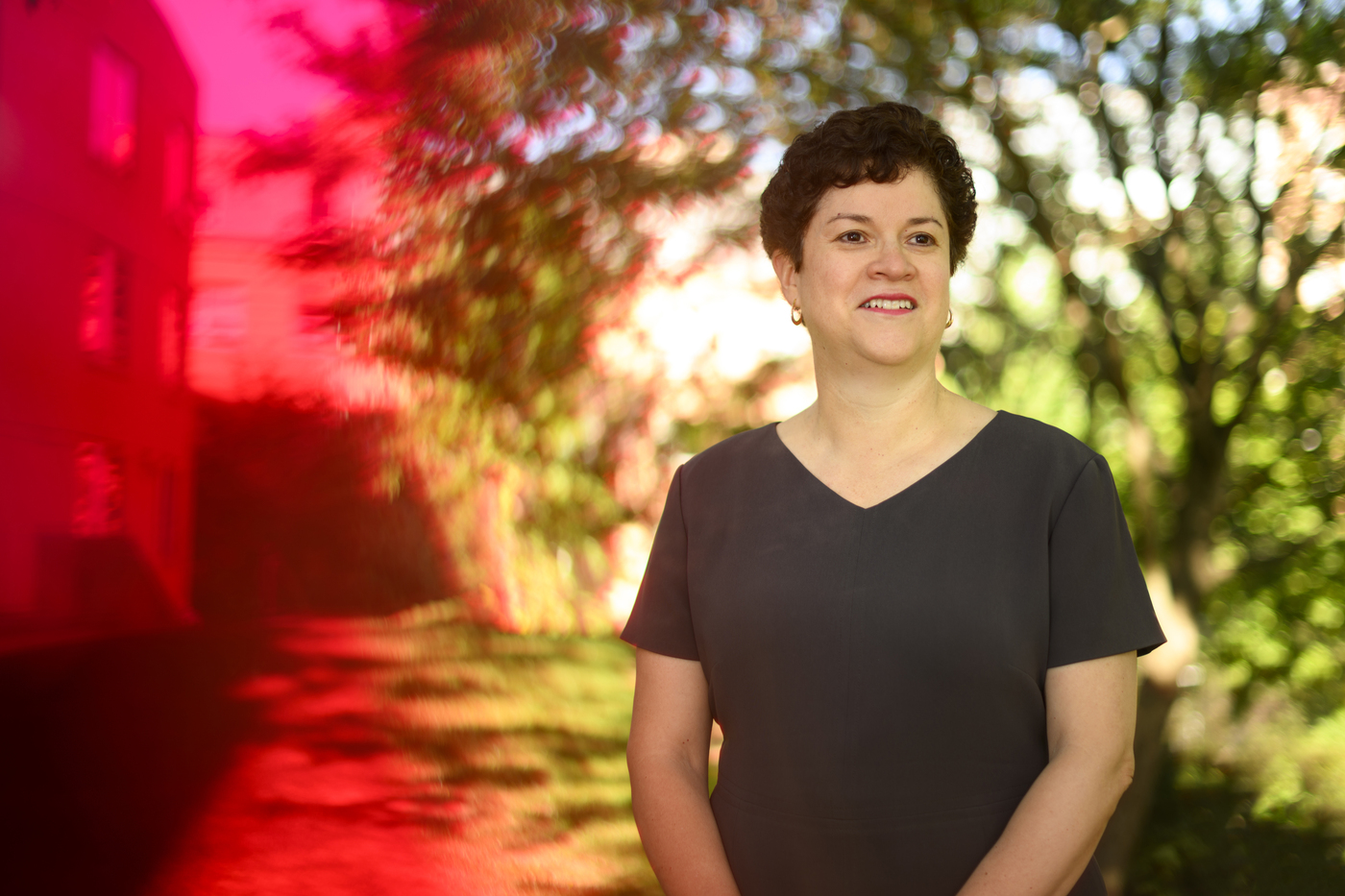Why it’s important to have more minority researchers involved in research on diseases of aging

As the population of the U.S. gets older and increasingly diverse, a Northeastern researcher says it is more important than ever to develop lifestyle interventions and supports that will help elderly people from minority communities live healthier lives.
For that to happen, the ranks of researchers on aging need to have more representation from racial and ethnic groups underrepresented in biomedical and behavioral research, says Carmen Sceppa, dean of Northeastern’s Bouvé College of Health Sciences.
“Not only do we not have the participation of underrepresented, underserved populations in evidence-based research, but when they are participants in the research they are not necessarily feeling engaged or fully involved,” she says.
If the researchers don’t share their lived experiences, the research participants may not feel their needs or cultures are understood, Sceppa says.
She has taken on the role of addressing the paucity of minority researchers in aging on a national level by joining a four-member team that will support mentorship and other opportunities for new scientists across the country.
Called the National Coordinating Center (NCC) of the Resource Centers For Minority Aging Research (RCMAR), NCC was recently awarded a $3.89 million grant from the National Institute of Aging to support and disseminate research from 18 RCMAR centers across the country.

“It is our expectation that the research projects at each center will create a pipeline of new investigators interested in addressing minority aging research” by funding faculty and students in university programs serving BIPOC populations, Sceppa says.
In addition to Sceppa, members of the NCC team include Patricia M. D’Antonio of the Gerontological Society of America, Tamara A. Baker in the psychiatry department at the University of North Carolina at Chapel Hill’s School of Medicine, and Lisa L. Barnes, a cognitive neuropsychologist at the Rush Alzheimer’s Disease Center.
Sceppa has spent much of her career promoting healthy aging through lifestyle changes that help stave off chronic conditions such as cardiovascular disease and diabetes.
“We want to make access to health and well being equitable,” Sceppa says.
“In order to develop interventions that benefit the populations we want to serve, we need to understand what is going to work for them, or we may develop a program that is not what they are looking for,” she says.
“Doing focus groups and engaging with community-based organizations and faith-based organizations is a way to get an inside view of the mindset and opportunities that we have with the people we want to do research with,” Sceppa says.
Karl Reid, Northeastern’s chief inclusion officer, calls Sceppa “a consummate champion for diversity, equity and inclusion.”
Following a GSA press release, he says the NIA award “will dramatically increase her capacity to prepare scientists who can model her commitment to inclusive excellence in serving underrepresented populations.”
Sceppa says her research is not only about advancing knowledge but also about “mentoring new generations of researchers.”
She says the NIA sends out a call for proposals for members of RCMAR’s National Coordinating Center every five years and, in turn, each of the 18 funded centers promote significant research within their regions.
The four-member team awarded the five-year grant this time around has collaborated on past endeavors, Sceppa says.
“This is very much what Northeastern is all about: looking at challenges in the real world and asking the right questions to address them in a thoughtful, relevant and impactful manner,” she says.
Cynthia McCormick Hibbert is a Northeastern Global News reporter. Email her at c.hibbert@northeastern.edu or contact her on X/Twitter @HibbertCynthia.
